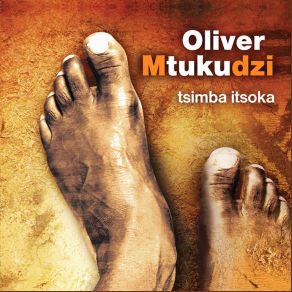Tsimba Itsoka
Download links and information about Tsimba Itsoka by Oliver “Tuku” Mtukudzi / Oliver "Tuku" Mtukudzi. This album was released in 2007 and it belongs to World Music genres. It contains 12 tracks with total duration of 01:07:12 minutes.

|
|
|---|---|
| Artist: | Oliver “Tuku” Mtukudzi / Oliver "Tuku" Mtukudzi |
| Release date: | 2007 |
| Genre: | World Music |
| Tracks: | 12 |
| Duration: | 01:07:12 |
| Buy it NOW at: | |
| Buy on iTunes $8.99 | |
Tracks
[Edit]| No. | Title | Length |
|---|---|---|
| 1. | Ungadé We | 5:26 |
| 2. | Chikara | 5:34 |
| 3. | Kuropodza | 6:32 |
| 4. | Mhinduro | 5:35 |
| 5. | Hapana Kuti Mbijana | 5:10 |
| 6. | Njuga | 5:28 |
| 7. | Kuipedza | 5:48 |
| 8. | Masimba Mashoma | 5:12 |
| 9. | Mbiri Hurimbo | 5:15 |
| 10. | Nzungu Imwe | 6:37 |
| 11. | Vachakunonokera | 5:14 |
| 12. | Kumirira Nekumirira | 5:21 |
Details
[Edit]A worthy, rhythmically intense, and spiritual-minded follow-up to the Zimbabwean Afro-pop icon's 2005 Heads Up debut, Nhava, this collection is geared around an encouraging musical discussion of a specific theme whose elements are embodied in each engaging, exotically soulful track. Translated literally, the album title means "No Foot, No Footprint," which addresses the duality of what each of us can choose to leave behind during our life's journey. Some, Mtukudzi intones in his haunting, raspy style, travel in a positive direction, some negative. Yet everyone leaves his or her mark. Because of his short, spirited, and to-the-point English liner notes, which explain the lyrics of each song, the listener can just groove along without a translator through jazzy tracks like the opener, "Ungade We?," which features exciting call-and-response patterns by the singer and a female chorus and some sexy, smooth jazz sax. The tune begs the question "Would you like it?," asking very directly about what kind of footprint the listener is leaving. The hypnotic, slower-rolling "Chikara" urges spiritual discernment as we follow the footprints of others, while the heavy bass bottom and soaring synth textures create a cool contrast around "Kuropodza," which is all about the importance of communication. Silky sax, jangling guitars, and those wide-eyed female vocals back the singer on the pointed "Mhinduro," which chides those who reply before the question is even asked. Other tracks urge us to accept responsibility for our gambles ("Njuga") and decry the foolishness of living by negative emotions (the wistful and haunting ballad "Kuipedza"). Looking at the lyrical themes alone, the disc is a fascinating statement of social consciousness and a wake-up call. Yet it can also be enjoyed as an expression of a time, place, and musical tradition of a country rich in pop, jazz, and African rhythms.